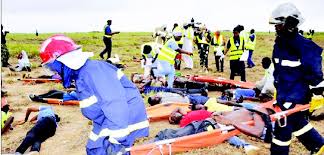
Health emergencies, such as pandemics and natural disasters, can have a devastating impact on communities, especially those that are already vulnerable.
These events can intensify existing inequalities and overly affect certain groups, such as the poor, elderly, and those with underlying health conditions.
In this write up, we will explore the ways in which health emergencies can impact vulnerable communities and discuss what can be done to mitigate these effects.
The impact of health emergencies on vulnerable communities:
- Increased risk of illness: Vulnerable communities may be at a higher risk of contracting and suffering severe consequences from illnesses during a health emergency. For example, the COVID-19 pandemic has extremely affected low-income communities, especially those with underlying health conditions
- Limited access to healthcare: Vulnerable communities may have limited access to healthcare resources and may struggle to afford treatment for illnesses during a health emergency. This can lead to higher mortality rates and poorer health outcomes.
- Disruption of basic needs: Health emergencies can disrupt access to essential services such as food, water, and shelter, which can have serious consequences for vulnerable communities. For example, natural disasters such as flood, can destroy homes and infrastructure, leaving communities without access to basic necessities.
- Economic impact: Health emergencies can have a significant economic impact on vulnerable communities, as they may struggle to afford necessities and may lose income due to job loss or business closures. This can lead to a cycle of poverty and further magnify existing inequalities.
What can be done to mitigate the impact of health emergencies on vulnerable communities:
- Increase access to healthcare: Ensuring that vulnerable communities have access to quality healthcare can help to mitigate the impact of health emergencies. This can include providing access to preventive care, such as vaccines, as well as increasing funding for healthcare resources in underserved areas.
- Provide social welfare: Providing social aid to vulnerable communities during health emergencies can help to mitigate the negative impacts. This can include providing access to food, water, and shelter, as well as financial assistance and mental health support.
- Address inequalities: It is important to address the underlying inequalities that make certain communities more vulnerable to the effects of health emergencies. This can include addressing issues such as poverty, lack of access to healthcare, and inadequate infrastructure.
The effects of health emergencies can be devastating for vulnerable communities. The best way to mitigate these effects is to increase access to healthcare, provide social support, and address underlying inequalities. It is possible to create a more equitable and resilient society by taking action.
You can take action by partnering with HEI Today!

